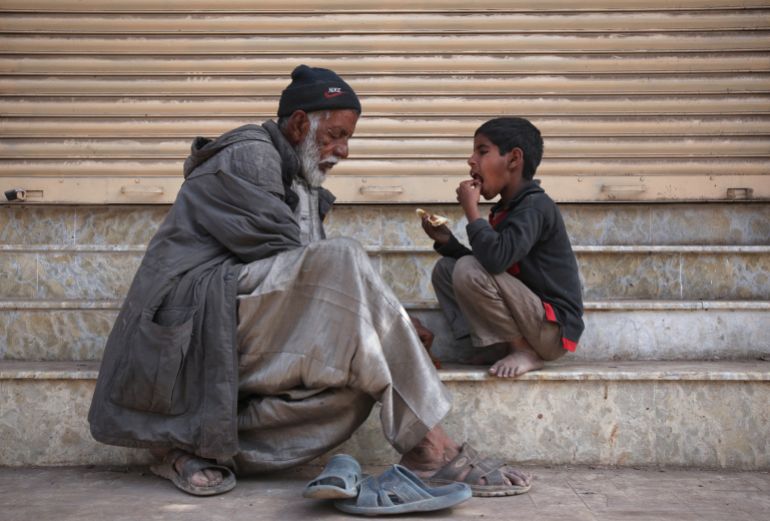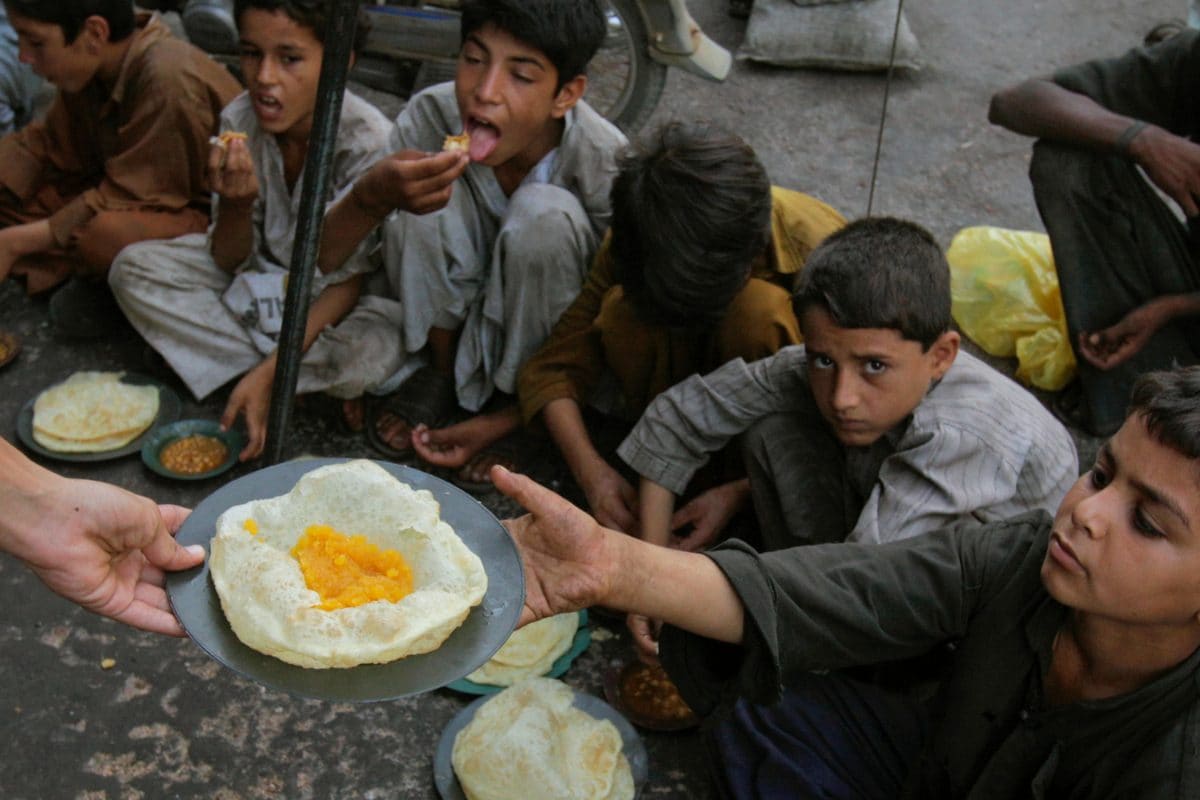Mon 31 July 2023:
Islamabad, Pakistan – Pakistan, the world’s fifth most populous country, has been ranked 99th out of 129 nations in a Global Hunger Index (GHI) report which described its level of hunger as “serious”.
The fourth edition of the report, prepared in collaboration between German non-profit Welthungerhilfe and its Irish counterpart Concern Worldwide, is a peer-reviewed publication and was launched in the Pakistani capital, Islamabad, on Tuesday.
Highlighting a global food crisis, the report says that a “toxic cocktail of conflict, climate change and the COVID-19 pandemic” left millions vulnerable to food shortages.
Alarmingly, according to the report, GHI projections show that at least 46 countries in the world, including Pakistan, will fail to achieve “low hunger” by 2030.
Pakistan achieved a score of 26.1 for the 2022 report, worse than its 29.6 in the last edition of the report in 2014.
The 2007 and 2000 reports showed Pakistan’s GHI score at 32.1 and 36.8 respectively.

South Asia has one the highest child stunting rates in the world, according to the GHI report [File: Akhtar Soomro/Reuters]
The report, published in October last year, showed that Sub-Saharan Africa and South Asia are the regions with the “highest hunger levels” and remain most vulnerable to future shocks and crises.
“South Asia, the region with the world’s highest hunger level, has the highest child stunting rate and by far the highest child wasting rate of any world region,” it added.
Pakistan was singled out along with five other countries with increasing stunting rates in children.

“The areas with the least improvement over time – where stunting levels either increased or stagnated were in central Chad, central Pakistan, central Afghanistan, and northeastern Angola, as well as throughout the Democratic Republic of the Congo and Madagascar,” the report said.
The UN report, jointly prepared by the World Food Programme and the Food and Agriculture Organization, also painted a dire outlook for Pakistan, saying more than eight million people are expected to experience “high levels of acute food insecurity”.

Political upheaval
Pakistan has faced a tumultuous 18 months, in which a continuing political crisis has compounded the worst financial crisis the country has ever faced.
Last year’s devastating floods left lasting damage to the economy, which suffered more than $30bn of total losses, with the agriculture sector alone enduring damage worth more than $100m.
A mounting balance-of-payment crisis has led to depleted foreign reserves and the country currently owes its creditors more than $77bn, payable in the next three years, according to the International Monetary Fund.
Meanwhile, inflation has surged to a record high, touching 38 percent earlier this year, while energy tariffs have also increased due to demands made by the IMF.

Pakistan, which is heavily reliant on imports to meet its domestic requirements, has also seen the value of its currency plummet by more than 50 percent against the US dollar in the past year.
Abedullah, an agriculture economist and chief of research at the Islamabad-based Pakistan Institute of Development Economics (PIDE), said two issues to consider are accessibility and affordability.
“In Pakistan, we are primarily facing a problem of affordability. While food is available, incomes have squeezed. That has resulted in reduced purchasing power and that is the bigger worry now,” he told Al Jazeera.
Abedullah, who goes by one name, said the government has to slow inflation and stem the devaluation of the Pakistani rupee.
“People are simply unable to afford things any more. The government must work on boosting productivity and work on improving affordability,” he added.

‘Very little skills’
On Pakistan’s food needs, Adil Mansoor, a food security researcher based in the southern city of Karachi, said the country’s domestic wheat production has not achieved required targets and Pakistan has been forced to import at least 10 percent of its wheat for at least four years.
“It is highly unlikely that we will become domestically sufficient in wheat production in the next five years at least,” he told Al Jazeera, adding that while the quality of Pakistani wheat was not a problem itself, the seeds used for production did not give a higher yield.
“We have very little research facilities and skills that could help develop better seeds which could give higher productivity. We are also exporting it, particularly to Afghanistan, since after the dollar was allowed to operate on [the] market rate, that meant better profit margin,” he added.

______________________________________________________________
FOLLOW INDEPENDENT PRESS:
TWITTER (CLICK HERE)
https://twitter.com/IpIndependent
FACEBOOK (CLICK HERE)
https://web.facebook.com/ipindependent
Think your friends would be interested? Share this story!





